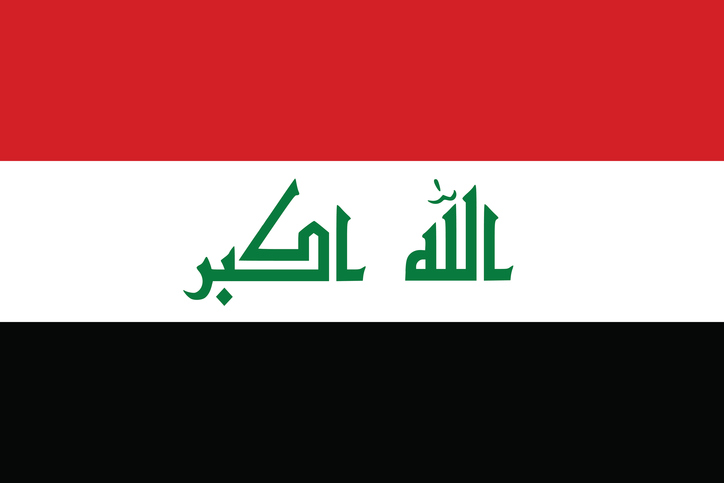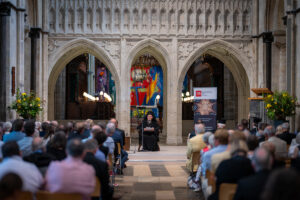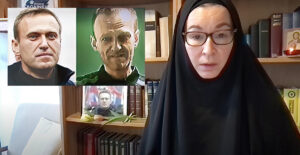ISIS (referred to as “Isil” in this article) has largely been driven out of northern Iraq, but this has not led to relief for Iraq’s Christians. Almost all of the Orthodox Christians in Iraq were displaced during the period of war and strife that began early in the 21st century. And now, many of those who have returned home find themselves still in danger, now from the Iranian-backed Shiite militias. Shia “Popular Mobilization Units” have taken up where ISIS left off and are making life difficult for the Christians who survived ISIS’ reign of terror. An internationally protected safe zone is urgently needed.
Please continue to pray for the Christians of Iraq, and that these Iranian-backed Shia militias, on top of every other group that has targeted the Christians, will not succeed in bringing about the extinction of Christianity in that nation.
“‘The situation is very vulnerable’: Iran-backed militias ethnically cleansing northern Iraq,” by Tim Stanley, The Telegraph, July 12, 2019:
The official story is that northern Iraq is at peace. The Islamic State of Iraq and the Levant (Isil) has largely been defeated; the Iraqi Army and its allies are in charge. But for Christians, the persecution continues.
Those who can are getting out. Those who stay are preparing themselves for more violence. “Things are bad more than any other time,” Fr Behnam Benoka tells me at his church in Bartella, a ghost town protected, if that’s the right word, by soldiers with Kalashnikovs. “It’s harder even than before Isil.”
Isil was a nightmare, the worst one can possibly imagine. But Christians say that having left their homes to escape Sunni fundamentalism, they’ve returned to find their lands are now dominated by Shia militia sponsored, allegedly, by Iran. Christianity, they fear, faces extinction in what was once a multicultural society.
My guide on this trip is Fr Benedict Kiely, an English priest who runs a charity called Nasarean.org that provides advocacy and aid for Iraqi Christians. He knows a man who knows a man who gets us through countless checkpoints, themselves a brazen display of the contest to control the region known as the Nineveh Plains.
Nineveh lies north and east of Mosul, traditionally regarded as home to the tomb of the prophet Jonah; so old is the Christian community here that the men in our car speak conversational Aramaic, the language of Jesus.
Under Saddam Hussein Christians enjoyed relative tolerance and stability. Many were middle-class and some held positions in the ruling Baath Party, all of which would later make them a target for retribution. It’s estimated that the Christian population has fallen from around 1.5 million under Saddam to about 250,000 today, a decline that began under the dictator. In the late Nineties, Saddam found god in a bid for legitimacy. Islamic religious education was encouraged and young radicals went to Saudi Arabia for instruction.
In the car, Yohanna Towaya, a Christian who previously lived and worked in Mosul as a professor, divides history into “before 2003 and after 2003.” The West invaded in March of that year. In September, he recalls, the Islamic mullahs in Mosul began to preach that “the Christians are infidels and also aiding the Americans.” Islamists took effective control, sponsored, he says, by al-Qaeda.
They kidnapped Christians, ostensibly to raise cash for the anti-American resistance. Mr Towaya’s own brother and brother-in-law were taken while working in the fields: men approached them with guns and said “come with us”. Mr Towaya shrugs: “This was ordinary.” The kidnappers set their ransom at $500,000, an absurd sum, but the Towayas knew a general who was able to negotiate the men’s release. If anyone couldn’t pay, the victim was beheaded and their body dumped in the street.
Mr Towaya says that between 2003 and 2014, “The majority [of Christians] left Mosul and went to the [surrounding] Nineveh plains”. Some fled abroad, to Lebanon, Jordan, Turkey, even Syria. His own family returned to their ancestral home in Qaraqosh on the Plains. But something even worse was coming. On June 10, Isil – an army of Sunni Jihadists Hell-bent on building a new empire – captured Mosul….
They’re not entirely gone: this week, the Iraqi military announced a sweep of the countryside to dig out Isil cells. But even if Isil’s local power base is lost, even if there is no hunger for the return of the caliphate in Mosul, there are signs that Sunni fundamentalism is being replaced by Shia chauvinism with long-term objectives. In the course of this mass movement of people across northern Iraq, the Christian population fell but the concentration of Shabak Arabs grew, a mostly Shia ethnic group boosted by the pro-Iran Shia militia. In the view of Fr Benoka, a new coalition of interests “want to force [the Christians] from our lands.”…







